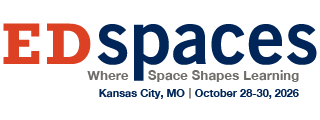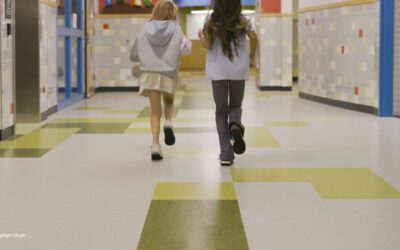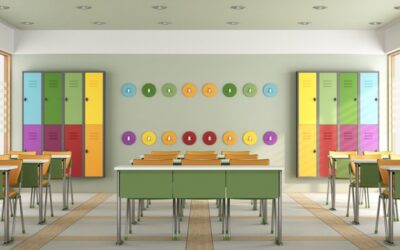Creating a classroom environment that nurtures executive function skills requires intentionality at every grade level. Distractions and disorganization often lurk in places we don’t expect—embedded in our lesson designs, our physical spaces, and our daily routines. The good news? Thoughtful adjustments, both small and large, can dramatically improve outcomes for all students.
Author Profile
Alexander Kreeft
Alexander Kreeft's Recent Articles
K-12 Spaces That Work: Classroom Design For Executive Function Success
Creating a classroom environment that nurtures executive function skills requires intentionality at every grade level. Distractions and disorganization often lurk in places we don’t expect—embedded in our lesson designs, our physical spaces, and our daily routines. The good news? Thoughtful adjustments, both small and large, can dramatically improve outcomes for all students.
Design Principles for Outdoor Play and Learning Spaces
Children tend to be less anxious when they spend time outdoors during the school day because nature, movement, and unstructured play directly support emotional regulation, stress recovery, and social connection. These same factors can be intentionally embedded in how school outdoor spaces are designed, giving school leaders and procurement teams a powerful, relatively low-cost lever to support mental health and learning.
Cell Phones in Schools: The Research is In
Banning cell phones in the classroom is increasingly supported by research linking reduced device access to modest but meaningful gains in student achievement, especially for lower-achieving and disadvantaged students. At the same time, the evidence is nuanced, with some studies finding no academic change and others highlighting implementation costs such as increased disciplinary incidents in the first year of a ban. While it might be too early to tell, there appears to be many more positive impacts on learning than negative from keeping smart phones out of the classroom.
Time to Rebuild Your Digital Toolkit? K-12 School Leaders are Focusing on Purpose not Products
When schools shifted to remote and hybrid learning during the pandemic, districts adopted digital platforms at breakneck speed. Some were essential, others were chosen simply because they were available on short notice. Now that emergency funding is fading and leaders are being pressed to show results, many districts are undertaking a new kind of cleanup: reducing their overwhelming collections of edtech tools.
Rethinking Technology Integration: A Guide for K–12 Leaders
School leaders are under constant pressure to choose the “right” educational technology. New platforms promise engagement, personalization, and improved outcomes, yet many districts still struggle to see meaningful instructional change. The challenge, however, is rarely about access to devices or software. More often, it is about clarity: understanding how and when technology genuinely strengthens teaching and learning.
Generative AI in K–12 Education: What We Know, What’s Missing, and What Comes Next
Generative artificial intelligence (GenAI) has moved rapidly from novelty to reality in classrooms, raising urgent questions about how it should be used, studied, and governed—especially in K–12 education, where foundational learning takes place. While debates about ethics, authorship, and academic integrity often dominate public discourse, a growing body of research is beginning to explore how GenAI tools like ChatGPT are actually being used by teachers and students. A recent synthesis of empirical studies offers a revealing snapshot of current practices, research gaps, and future priorities for integrating GenAI meaningfully into school systems.
Tiny Sensors, Big Impact: How Schools Are Tackling Invisible Air Hazards
In classrooms across Boston, small high-tech sensors are quietly transforming how schools protect students’ health. These devices are part of a pioneering initiative by Boston Public Schools (BPS) to monitor indoor air quality in real time — a first-of-its-kind effort that could change how schools nationwide think about clean air, student performance, and well-being.
Building Trust Through Smarter Spending: What Pittsburgh Public Schools Can Teach Us About Procurement
School leaders everywhere know that every dollar matters. As federal relief funds expire and education budgets tighten, districts face growing pressure to stretch resources without compromising quality. A new report from Pittsburgh’s Office of the City Controller offers a timely reminder: strong procurement practices—how schools buy goods and services—can unlock millions in savings, improve service quality, and strengthen public trust.
How Technology-Enhanced Collaborative Inquiry Transforms Student Learning
A growing body of research is revealing how technology can transform inquiry-based learning — helping students think, collaborate, and problem-solve like scientists. A recent synthesis of 58 empirical studies examined how technology-enhanced collaborative inquiry (TECI) affects student learning across K–12 classrooms. The findings show clear benefits: students gain deeper content knowledge, develop stronger inquiry and argumentation skills, and engage more meaningfully with peers. At the same time, the studies highlight real-world challenges for teachers trying to orchestrate complex inquiry activities within limited classroom time.










